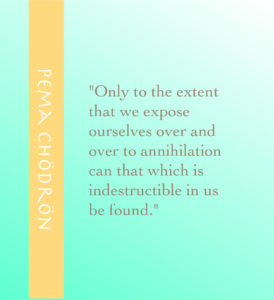Marc Maron’s IFC show “Maron” depicts a character poised between two distinct groups: those swimming successfully in the mainstream, such as his famous podcast guests, and the oddball folks who wander in and out of his life. The latter category includes a neighbor who shows up at his door holding a car tire declaring he’s stopped using money. Henceforth he will only obtain goods by barter. Marc appears as the strangely compassionate, fragile asshole who navigates both realities.
I wonder if these colliding worlds represent aspects of Maron’s identity. Looked at in the context of the series as a whole, they could point to the stakes of him picking up booze: two doors.
My favorite episode, The Node, occurs in the middle of the 3rd season. Frustrated by his unreliable internet connection, Marc engages in a series of surreal interactions with his cable company. First we meet the customer service rep, an inmate putting on an Indian accent. Nonsensical and hilarious, this struck me as possibly commenting on absurdly intertwining messed up systems — corporate and social, as well as personal.
Next, a disconcertingly affectionate in-person service guy takes a meaningless stab at fixing the problem. After him, a second repair guy shows up on Marc’s doorstep. While removing his company shirt in exchange for the oddball neighbor’s tire the second dude explains why it is not within the power of lowly repair people to address the connectivity issue that center around “the node.” During this exchange, Marc’s bipolar father pulls up in his mammoth RV, mutters suicidal threats, then runs down the street.
More breakdowns ensue. We see Marc at the intersection of his fucked up family and our fucked up late stage capitalist society. Corporations lack accountability as they widen the social divide between the exploited and the entitled. Choosing to live boils down to tolerating endless unsolvable problems in an increasingly polarized indifferent world.
One of his podcast subjects cracks some light on his cable issue; the company provides elite customers with a contact number for something called “Tier 4 assistance,” a resource the guest does not share. Marc kvetches and, in his way, flows with the unrelenting distress. Then, in the middle of the night, the phone rings.
We see a polished, middle-aged man sitting at a pristine glass desk in a completely white room. A pure white, old-style landline is the sole object on an immaculate desktop. The vibe is surreal. This guy — dressed crisply, almost angelically, in a white 3-piece suit, white shirt and shoes — comes across as a vintage-stylish Hollywood incarnation of a mystical presence.
Marc (in darkness) picks up the phone: Hello?
Mystical, polished dude: Hey, man. How’s it going?
Who’s this?
Oh, come on, Marc. You know who this is. This is Tier 4.
Hey. Do you need my 10-digit repair number?
No.
Why do you give it out if you never need it?
Well — to give people something to hold on to. Hope.
Yeah, I’m not feeling that.
Things aren’t always what they seem, Marc. Sometimes what’s going on is deeper and more impactful. The real truth is underneath.
Okay. I get that. But I still need the internet.
Well, everyone needs the internet. But that doesn’t mean that what you’re feeling right now is about the internet, because it’s not. It’s about a deep-rooted need for justice, and fear of not being in control.
Yeah. I understand that. It’s about something deeper.
You need to stop yelling at your girlfriends. You need to make up with your father. And you need to stop watching porn. You don’t watch a lot but you watch enough.
I don’t watch anything that weird.
A couple of weeks ago it got a little weird.
Yeah, but you know, when you get into the Baltic stuff you really don’t know what’s gonna happen. . . . . All right, so what’s your point? You want me to engage in my life and — and be a better person?
Yeah. Be a stand-up guy.
Okay. Done.
Okay. I just split the node.
You can just do it from there?
Yeah. I’m the node splitter.
Marc hangs up and talks a little to his father about hope.
*Fin*
